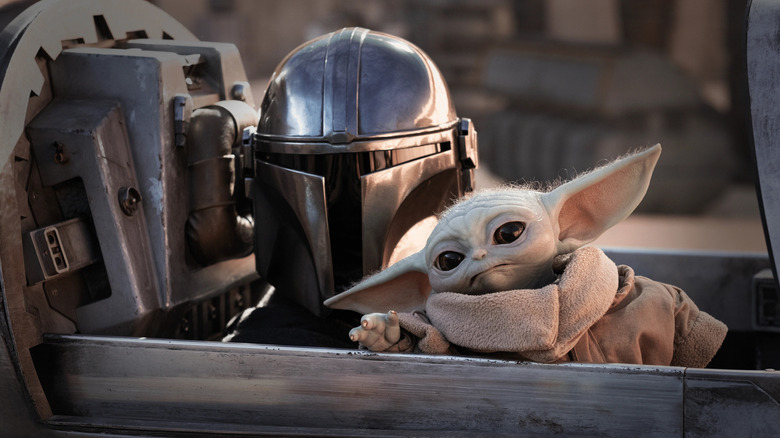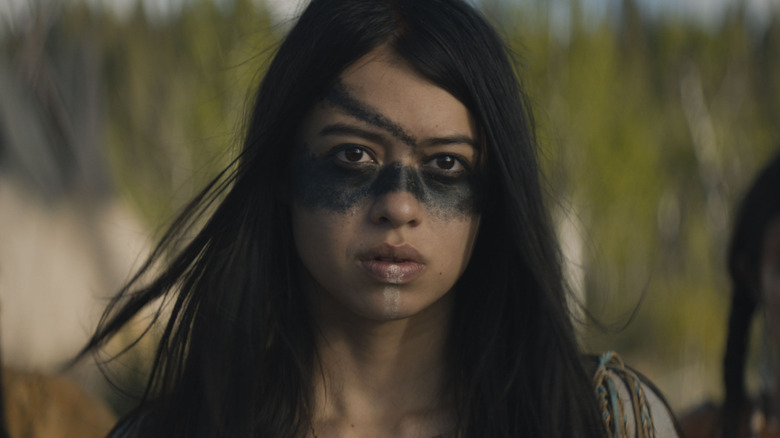Why Hulu Merging With Disney+ Is A Bad Idea
If you've been paying attention, you probably saw this one coming. Disney CEO Bob Iger has announced that Hulu and Disney+ will be merging into a single streaming interface. It's the natural extension of the "Hulu on Disney+" integration made in 2024, which added a tab for Hulu movies and shows in the Disney+ interface for users with subscriptions to both services.
Numbers from the end of June 2025 put the total number of subscribers across both platforms at 183 million worldwide, with the majority — about 128 million — coming from Disney+. Bundle deals between the two and Disney's other major streaming platform, ESPN+, have been common in recent years, but it's clear that the Disney+ brand is currently stronger.
"Over the coming months, we will be implementing improvements within the Disney Plus app, including exciting new features and a more personalized homepage," Iger said in Disney's recent quarterly earnings report (via CNET), "all of which will culminate with the unified Disney Plus and Hulu streaming app experience that will be available to consumers next year." Taking that at face value, it means that the Disney+ app will be the last one standing of the two, with all of Hulu's content being consolidated into the platform.
While this may have been inevitable, it isn't necessarily a good thing. Price hikes across the streaming market have hit consumers hard over the last few years, including ones for Disney+. This consolidation could make that an even larger problem, with fewer options for subscribers to pick and choose which libraries they want access too — though Disney is sure to introduce a new suite of subscription tiers as part of the merger. Either way, there are still big questions to ask about the state of Disney+ as a whole.
Disney+ may be the bigger brand, but it's the worse app
Out of all the major streaming platforms (Netflix, Hulu, HBO Max, Peacock, etc.), it's hard to think of one with a more convoluted infrastructure than Disney+. The platform is designed first and foremost to center the company's biggest brands: Star Wars, Marvel, National Geographic, Pixar, and Disney proper, among others. It's a digital ecosystem that completely buys into the platonic idea of the "fan" whose loyalty to their chosen franchise is always the driving motivator in their content consumption. Finding anything specific or less-known there is almost always a hassle.
Hulu, by comparison, is formatted in a much more traditional way and was built to showcase the full breadth of its library and advertise new content according to various points of potential interest (genre, relevance, and so forth). Put simply, it's a much cleaner app, and it's a shame that it's the one that will perish and be swallowed up.
It's also worth noting in all this that in the same earnings report, Disney announced it would stop publishing official subscriber counts for its streaming platforms, shifting focus from eyes on the screen to the actual money made. This reflects larger shifts in the industry in how companies gauge success — a volatile thing to track in the streaming era. It's been less than a year since Disney started reporting actual profits from its streaming division, and while the business is doing much better now, with a $346 million profit from streaming in the last quarter, the reputation of the product is still a bit dicey.
Other brands haven't exactly thrived on Disney+
Prior to becoming profitable at the end of 2024, Disney+ hemorrhaged over $10 billion in losses. It might feel like there's now finally a light at the end of the tunnel, but the streaming landscape hasn't gotten any less chaotic, and Disney will need a lot more successful quarters to earn back that initial sunk cost.
Of course, the money itself is only one part of the equation. It's also worth considering the resounding reputation of Disney+ and its IP. For the most part, major brands like Marvel and Star Wars have suffered in the Disney+ era, with more critical misses than hits and a lot of big budgets that didn't yield a ton of return on investment. Those misses have bled out past the streaming world and into the rest of the business, as evidenced by the suffering box office returns on Marvel Cinematic Universe films over the last several years, and the abject lack of theatrical "Star Wars." Even the once-untouchable Pixar has suffered from questionable content strategies in the streaming era.
Hulu has built a pretty good reputation for strong original programming, as well as its partnership with FX. It would be a shame to see that goodwill go a similar way as Disney's other sub-brands after it's subsumed by Disney+. In the long term, consolidating the two and keeping the Disney name on the marquee is probably the right business move. But the record shows that higher prices, a worse interface, and dips in content could all be coming as part of it.


